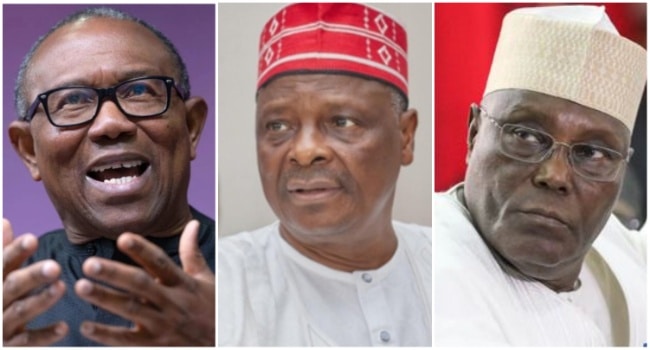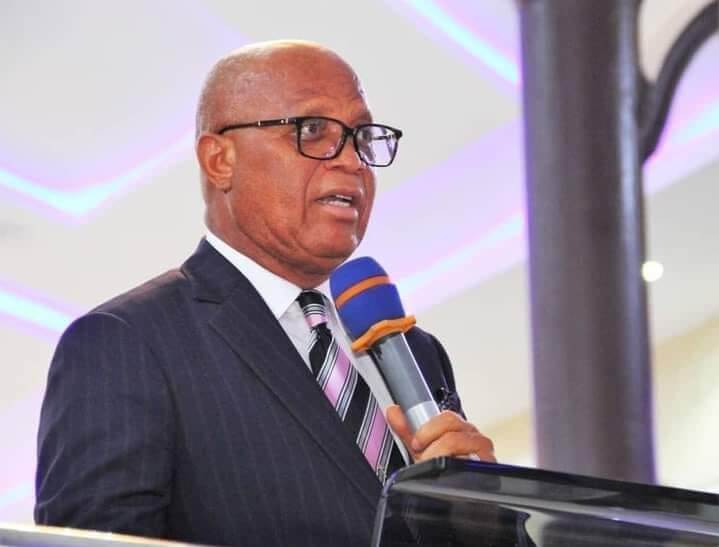ARTICLE AD
In this interview with DAMILOLA AINA, a top official on Public-Private Partnerships who worked directly with the late former President Umaru Yar’Adua and former President Goodluck Jonathan, and now the Managing Director of Cubical Vertex Solutions Limited, Abdullahi Hashim, advocates for wider mass enlightenment to secure public buy-in for the Federal Government’s proposed tax reforms. Excerpts:
What is your perspective on the tax bills?
The tax reform bills are among the most ambitious I have ever seen. For example, even Singapore implemented reforms to its tax process as far back as 2023. So, it’s a global thing. Even the Organisation of Economic Co-operation Development, with a membership strength of 38 countries carried out tax reforms. They also adopted certain policies similar to what Mr President did. It is not peculiar to Nigeria. If you look at the system, we have been using an archaic tax system. These bills provide an opportunity to improve and upgrade our existing system, and we have to contextualise it with realities on the ground. It has to be in tandem with global practice. If you examine the post-COVID-19 experience, the ageing population, and the overriding expansion of technology, there is a need to upgrade our tax laws. So, what I advocate is nothing but a consensus. It is a very wonderful thing, but the consensus is what will move the country forward. Based on what the Nigeria Governors’ Forum has adopted, there will be a positive change.
Do you agree with the NGF’s proposals?
The proposal means a paradigm shift in policy and administration. They have to vent their perspective based on their local realities so that they will see it as a positive change for their people since they are also elected by the people. They have to inspire their people; they have to bring their yearnings to the federal level.
Do you think the new proposal by the governors is realistic or fairer?
Well, it is open for debate. There must be an equilibrium point where they will come to an understanding.
Would you suggest we work with the governors’ proposal?
Whatever we have as a policy, we need to contextualise it to suit our local content and the reality in Nigeria, so that common people will not be shortchanged. That is my perspective. What I mean by reality is the purchasing power and economic leakages. For instance, let’s talk about local petroleum consumption. Some of the figures I got, I think 15.6 million litres of petrol are being smuggled out. So, that will affect Nigeria’s internal consumption. Since NNPC mentioned that the internal consumption is 64.14 million litres per day, now you remove 15.6 million. That would have an effect. When you talk about tax concession, some businesses have to be adopted for tax concession so that they will not be exempted, but they will be given tax waivers for a certain period for road construction, maybe expansion of certain bridges and other stuff like that. Instead of paying the tax to the government, certain infrastructure may need to be delivered across the corridors of their businesses. So, maybe they will make that concession so that they will help the businesses to run better.
How would you rate the level of public awareness of the tax reform bills and what should be done to resolve resistance?
The level of awareness is low and you can believe that. People don’t even know about the tax reform, not to talk about the details. The bill is over 400 pages long. Who has the time to read them when Nigeria is battling an increase in fuel pump prices, ballooning hardship and other stuff like that? So, people don’t even have time to read. The majority of those who have time to read have an interest in the bills. They play around it, you know, to suit their interest. And this thing is beyond personal interest. It’s talking about over 200 million people. The government should do more because the enlightenment is not there.
Critics are saying the bills will favour only Lagos State.
Who is saying that? How can that be possible? They simply want to discredit the efforts of Mr President. But Mr President brought this particular policy, not because he wants to make Nigerians poor. He wants to raise the capacity of Nigerians. He wants to reduce the enslavement of Nigerians by politicians. He wants to make people independent and set them free.
Do you believe the inauguration of the Port-Harcourt and the Warri refineries are notable milestones in Nigeria’s quest for increased local refining capacity?
Yes. It is worth celebrating because the past leadership did not make it happen. They even thought it was not going to happen. But under this administration, we have to appreciate it. Apart from the government refineries that are kicking up, even private refineries are starting operations. Dangote Refinery is already in operation. Also, BUA (refinery) is almost 70 per cent completed.
Should we sell off the refineries for optimum efficiency?
Yes, operation and maintenance under the private sector are one of the best things because every private person who invests a single penny inside any business wants a return on it. So, he will not play with the business. He will maintain it. And if you look at all the developed countries, they are all making concessions and Public-Private partnerships, which is a very good way to go.
Recently, Aliko Dangote said Nigeria should not import petrol because he feels his refinery could meet local consumption. What’s your take?
My take is that you can’t control the economy without allowing some flexibility. Dangote has the second-largest refinery in the world. So, I think he’s talking about his capacity. But in terms of Nigeria, there must be some flexibility, it shouldn’t be limited to a particular company. That’s my concern.
As a member of the Council for the Regulation of Engineering, what is being done to address the plague of building collapse?
There are policies which are not being implemented. The issue is that people would just call a foreman to build a house without taking into cognisance the stipulated rules and standards. I would say the challenge is the non-enforcement of the laws. And maybe defaulters should be sanctioned so that everybody can sit up, from the client to contractors to the engineers.
How do we deal with the use of substandard materials?
There should be a collaboration between the Standard Organisation of Nigeria and the Consumer Protection Agency. It’s very important and vital. They should link up with all the professional bodies like the Nigerian Institute of Civil Engineers and COREN to talk about this. NBBRI is also very pivotal in terms of testing material. They have a very big lab for testing material and standard material requirements. We need to know the quality of the material that suits our nation.
As a stakeholder, how frequently does COREN engage with the Federal Government to address housing challenges in the country?
Most of the members at the high level of COREN are also high-level politicians, who are also part of the government. So there is some interaction between COREN and the government, but from what I know, it happens mainly during events like the Annual General Meeting. COREN is a government-owned institution, unlike NSE, which is a society. While there is some level of relationship, it’s not as robust or consistent as it should be. For example, during one AGM, I told them they needed to establish a proper system for interfacing with the government. This involves identifying key players in the government and understanding what they want. Even in countries like America, you have lobbyist banks. What do they do? They study systems, understand people, and approach them strategically. They (COREN) were complaining that they had a lot of strategies that were not implemented. I told them, ‘Look, you need to approach them on the terms they would understand.’ You know, all politicians need win-win situations. How do you approach the politicians? You approach them with what they know so that your result will be quick.
Do you think houses or buildings are overpriced in Nigeria?
Yes, I agree. I think they are overpriced and the market needs to be checked. As I mentioned, the consumer protection agency must work on this. With the rising population and rising cost of materials, housing has become very difficult to build. One of the buildings I supervised was five or six stand-alone houses in Katampe (Abuja). Initially, they were selling the house at N200m, but now it is N860m.

 3 hours ago
5
3 hours ago
5 

